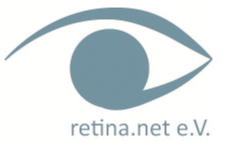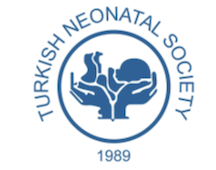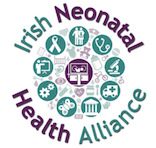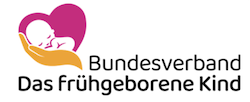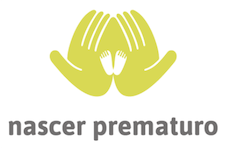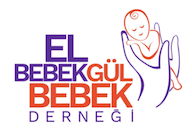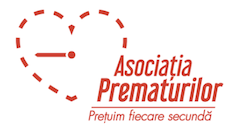About EU-ROP
Project summary
Retinopathy of prematurity (ROP) is one of the leading causes for childhood blindness worldwide. During the past years several prospective randomized clinical trials were conducted in this field to improve visual function and outcomes. Still, data on real-life treatment patterns and long-term follow-up is limited. This is mainly due to the fact, that individual centers have a limited number of treated patients per year. Collecting and analyzing real-life data is therefore best done in a collaborative multicenter approach.
The EU-ROP registry is an international, multicenter, observational registry study intended to run open-ended to collect and analyze data on infants treated for retinopathy of prematurity irrespective of the treatment modality. The registry is strictly observational; only clinical routine data is collected, no study-specific examinations or interventions are to be performed. All data is pseudonymized, meaning that no patient identifying information is shared.
The primary objectives of EU-ROP are to collect baseline demographic data from infants treated for ROP in different European countries, gather information on ROP characteristics together with treatment and follow-up patterns irrespective of the treatment modality as well as long-term outcomes (both ophthalmologic as well as neurodevelopmental). An important secondary objective is to analyze the incidence of ROP requiring treatment by country and year.
Why a European registry
We are fortunate that ROP requiring treatment is rare in Europe. Most hospitals in Germany for example treat only 3 to 5 children per year. The fact that only few infants need treatment for ROP makes it difficult for individual physicians to scientifically evaluate their data and draw conclusions for their daily practice. In 2011, the German Retina.net ROP Registry was established to provide a basis for joint data analysis across different German treatment centers. This registry has been active since 2012 and has collected data from over 300 treated ROP patients from 19 centers in Germany. Analyzing this data has already provided valuable information on treatment patterns, for example by identifying a considerable switch in treatment from laser coagulation to anti-VEGF agents over the recent years. These results were published in scientific journals and had an impact on the revised German guidelines on screening and treatment for ROP.
While the described findings from the German Retina.net ROP registry may be representative for the treatment patterns and outcomes in Germany, ROP patterns and disease progression are different in other countries. ROP is a disease that is very susceptible to subtle differences in neonatal and ophthalmological management. We know for example that ROP screening patterns, treatment approaches and neonatal care differ between countries within Europe. In order to obtain real-life data that is representative beyond one single country and to directly compare the different approaches, it is important to collect ROP treatment data in a multinational project. The EU-ROP project was initiated to achieve this goal.
We hope that many clinics from many countries will join the EU-ROP registry and enter their data. Joint analyses will make demographic parameters of patients needing treatment for ROP, the different treatment patterns, follow-up and outcome data available and comparable between participating European countries and centers.
Coordinators

Professor Andreas Stahl is the principal investigator of the EU-ROP project and Director of the Department of Ophthalmology at the University Medical Center Greifswald, Germany.
Since his early career Andreas Stahl pursues his scientific and clinical interest in retinopathy of prematurity. He was the principal investigator of the prospective, multicenter, randomized controlled, investigator initiated trial CARE-ROP (Comparing Alternative Ranibizumab dosages for safety and Efficacy in Retinopathy of Prematurity) and was one of the initiators of the German Retina.net ROP registry. He is also the lead author of the RAINBOW study, an international multicenter trial comparing ranibizumab to laser therapy in ROP. He has written numerous publications on ROP and has been involved in formulating the German guideline for screening and treatment of ROP in 2020 as well as the ICROP 3 classification in 2021.

Dr. Johanna Pfeil is study coordinator of the EU-ROP registry and is involved in the establishment of this project from the very beginning.
During her PhD in pharmaceutical sciences, she co-developed and worked with Professor Stahl on the CARE-ROP trial and the German Retina.net ROP registry. From 2017 to 2020 she worked in the Scientific Affairs Department of the European Foundation for the Care of Newborn Infants (EFCNI) and was involved in several international projects on preterm birth. Johanna Pfeil is lead and co-author of several publications on retinopathy of prematurity.

Sophie Schnorr is a 4th year medical student at the University Greifswald and student assistant for the EU-ROP project.
Her tasks include among others creating the newsletter, helping with the website and looking over the entered information in the database.
Participating centers
The EU-ROP project builds on experience from the German Retina.net ROP registry. Therefore, at the beginning of this project there will be a selection bias for hospitals located in Germany, simply based on the history of the German registry. We hope to motivate many centers from various countries to participate and dilute our initial selection bias by building a strong and international foundation for EU-ROP. If you are a physician or clinical care manager involved in treating ROP infants and interested in joining the EU-ROP project, please have a look at the ”How to participate” section for contact information.
Supporting organisations
The following Ophthalmological and Neonatological societies as well as parent organisations support the EU-ROP project:
Healthcare professional societies
Parent organisations
If you are a professional organisation in the area of Ophthalmology or Neonatology or a parent organisation and are interested in supporting the EU-ROP project, please contact us
Funding
The EU-ROP project is currently financed by extramural grants from the University Medicine Greifswald, solicited through the EU-ROP principal investigator from Novartis Pharma AG and Bayer.
Companies supporting the registry do not have any influence on the content or the design of the registry.
Data storage and safety
All data documented in the EU-ROP registry is stored in a secured University-based server in Germany at the center for clinical trials Cologne. All appropriate measures to ensure the confidentiality of stored personal and health information will be implemented through pseudonymization and encryption. The EU-ROP registry adheres to the strict GDPR criteria set up by the European Union. The registry is registered at DRKS (DRKS00025138) and clinical trials.gov (Clinicaltrials.gov ID: NCT04939571)

